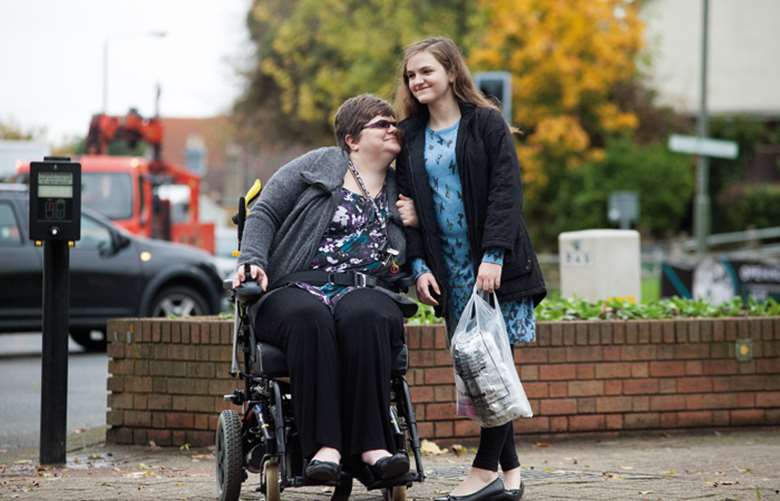Tackling plight of young carers
Anna Morris
Tuesday, January 17, 2017
Children's Commissioner for England report finds councils are struggling to meet the needs of young carers.

The Children's Commissioner's for England's report on young carers gives a useful insight into the support provided by local authorities across England, but shows there is still much to do to prevent young carers getting overlooked.
Support for young carers was expected to increase following the new duties placed on local government in the Children and Families Act 2014 and Care Act 2014. It is therefore shocking to read in the findings that an estimated 80 per cent of young carers remain unsupported (see "in numbers", below).
Councils are obviously not meeting the needs of all the young carers in their community. But without the commissioner's inquiry, how would this be known? There is no robust monitoring in place for either the identification, assessment or support provided for young carers by local government.
With huge cuts in funding, local authorities are under enormous pressure and struggling to prioritise their limited resources to give young carers the support they need.
At the heart of this failure remains a lack of commitment from senior staff - with more than half of the councils that responded stating the under-identification of young carers stemmed from a lack of professional awareness of the issues.
While 90 per cent of local authorities have arrangements in place to identify children with caring responsibilities, they are barely scratching the surface of young carers who are known to exist, let alone those who are hidden. More needs to be done to ensure that local authorities are meeting their duties and to monitor the impact of the 2014 legislation.
Age of young carers
One of the more alarming findings is that 160 young carers aged under five have been assessed and are receiving support. However, this has come as no surprise to Carers Trust. If a parent has epilepsy, their child is likely to know from a very young age how to place their parent into the recovery position and call an ambulance.
What this report highlights is the desperate need to invest in support that addresses the needs of the whole family and prevents these responsibilities from negatively impacting the child.
The fact that more young children are being identified is not necessarily a bad thing. On one level, this could be seen as a deplorable consequence of the failure of the health and social care system to address the needs of families, thereby creating an inappropriate reliance on children.
While this is in part true, I see this as an increasing awareness of caring within families and a better understanding that children do care and they start young.
What this finding emphasises is the absolute need to stop these responsibilities having a negative effect on the child taking into consideration how ill health impacts the whole family, and ensuring that children's and adult social services are working together to prevent young carers from slipping through the net.
They can do this by ensuring that staff are trained to identify children who are caring or at risk of caring at the earliest opportunity and that steps are taken as soon as possible to stop them from taking on responsibilities that jeopardise their own health and wellbeing.
Another interesting finding is the breakdown of support by age. There is a tail-off in support as carers get older, going from almost 56 per cent of support focused on 10- to 15-year-olds to eight per cent of over-18s. The 2011 census estimates there are 166,363 young carers aged under 18 in England and 292,820 young adult carers aged 16 to 24. Based on the census findings, one would expect the breakdown of support to young carers in the commissioner's report to also increase by age, but it doesn't.
This raises important questions about the support given to young carers as they make the transition to adulthood - something which is only touched upon in the report. It reflects feedback from the sector that indicates that councils are not meeting their duties in the Care Act and are not delivering adequate transition support. From a sample of 11 councils we asked, only three had developed transition tools.
Assessment versus support
A thread throughout the report is the focus on identification and assessment, further begging the question about support. There is a conflict between the evidence from local authorities and specialist organisations commissioned to provide assessments.
Local government reports show between 60 and 75 per cent are commissioning support from external agencies for young carers; specialist organisations say they are not receiving enough funding to do the assessments. There is no point in identifying and assessing young carers, then offering no meaningful support.
With cuts in funding, local authorities are struggling to prioritise their limited resources and young carers are often overlooked. To offer preventative, joined-up, whole-family support requires a whole-system approach. It requires children's and adult social services to work together, inter-agency partnership, training for the workforce and an increased commitment to professional awareness of young carers.
- By Anna Morris, young carers lead, Carers Trust
Carers in numbers
166,363
Young carers aged under 18
80%
Young carers receive no support
25%
Of councils have received young carer referrals for children aged under five
Source: 2011 Census; Support provided to young carers in England, Children's Commissioner for England




